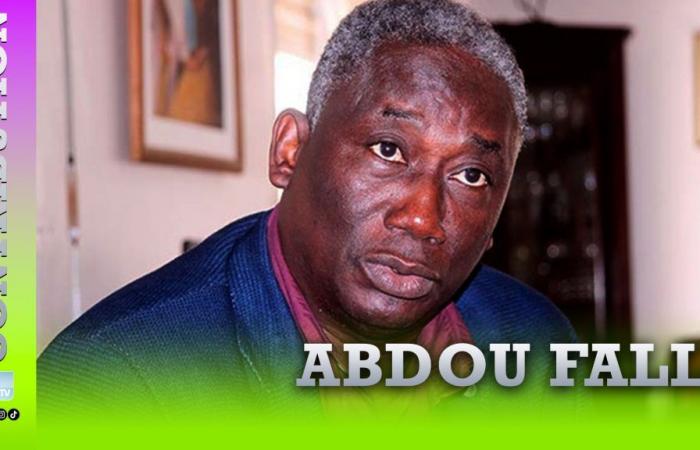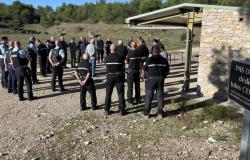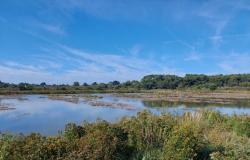
Legislative 2024: “On November 17, the salvation of Senegal lies in the triumph of a rebalancing vote…” (Abdou Fall, Former Minister of State).
“The strong citizen anger which was expressed on March 24, 2024 by a massive vote in favor of candidate Bassirou Diomaye Faye in the first round of the past presidential election, is a very tangible indicator of the irrepressible aspiration for change which has taken over our country for a quarter of a century”, is the conviction of the former Minister of State, Abdou Fall.
Through a very in-depth analysis of the current situation in the country, the next legislative elections, the different lists in the running, among others, Mr. Fall firmly believes that “on November 17, the salvation of Senegal lies in the triumph of a vote to rebalance between the major currents in the running”.
“This is why it was naturally expected from the current leadership team that clear prospects for substantive reforms should be identified as a priority, among which institutional questions should occupy a preponderant place in view of the recurring political crises that Senegal has gone through during these decades which mark our entry into the emerging century With the socialist regime first in 2000 and the liberal powers which followed in 2012 and 2024, three political alternations have taken place at the head of Senegal, all mainly marked by a strong. citizen aspiration for a break in the governance of the nation’s affairs.
As everyone will have noticed, the major topics of the national political debate since 2000 have mainly focused on governance issues.
Each of the deposed powers can boast to a very large extent a more than respectable record in terms of economic and financial recovery for the socialists in 2000, great achievements in the construction of the infrastructural bases of the economic and social development of the country for the Liberals in 2012 and 2024.
In this regard, President Macky Sall’s 12 years of leadership will have been particularly fruitful in all areas;
And yet this is where the change was almost made against a backdrop of electoral insurrection.
This is why it was everyone’s hope to see the new leadership team emerging victorious from the 2024 presidential elections seize the opportunity of the transition to the legislative elections to take stock of governance. political, democratic, economic and social of Senegal, negotiate with all the active forces of the nation the terms of a broad consensus on the major reforms to be undertaken, first of which the institutional projects, and finally open to the country the prospect of governance renovated.
And beyond the national context, Senegal would once again have been a pioneer by offering a new perspective to Africa where the crisis of the post-colonial state, particularly in the French-speaking area, leads to dangerous errors with consequences. disastrous in the functioning of our sub-regional community institutions.
In this regard, the nagging regime crises experienced by the countries known as the Alliance of African States (AES) deserve very particular attention from the politicians and intellectuals of the continent, in particular among us, objectively confined as we We are in a veritable ring of fire.
This is why today would have been a great opportunity if we went to our legislative elections on November 17 within the framework of a peaceful democracy and a profound update of the country’s institutions.
It being understood that the only valid political perspective is that of a society reconciled with itself and of a nation united to meet the challenge of its security which, as Professor Cheikh Anta Diop liked to repeat, is the condition and the prerequisite of any successful development policy.
We are well placed to know much about the untold suffering currently being experienced by the people of the nations under the umbrella of the so-called SEA states.
This is why it is of little importance for us to know too much about the reasons which could have justified the logics which ultimately prevailed to lead to this state of permanently maintained tensions and which still continues to reign in our space. public 6 months after the presidential election in March 2024 and some 6 weeks before the legislative elections on November 17.
What is established and constant is that this transition will have been a missed opportunity by the country’s new authorities to lay the foundations of an authentic democratic renewal.
It is in this exceptional circumstance of unfinished political changes that the legislative elections will be held in the 6 weeks which separate us from this momentous deadline.
I must say unequivocally, as far as I am concerned, that I am one of those who think that, given the facts observed over the 6 months of governance of the new management team and the rise in power of the political crises that the world with their impacts on our countries, simple wisdom should dictate that all men and women of good will mobilize in a vast citizen outburst in favor of policies of vast gatherings to face the great challenges of our time.
Our responsibilities dictate that we do everything to prevent these dangerously maintained permanent tensions from transforming into insurmountable crises for our country.
And in this regard, political lucidity should command us all to work towards the construction of a balance of forces which restores the balance between the main political currents which cross the country, so that in the words of Montesquieu, “by force things, power can stop power.”
A unilateral and absolute shift in favor of one camp to the detriment of the other blocs would, in our opinion, be fatal for the stability of the country, the unity and cohesion of our nation and the preservation of balances between the currents and forces of various natures which cross Senegalese society as a whole.
Four major blocs are currently competing for citizens’ votes for this crucial deadline of November 17.
The outcome of this election will determine to a very large extent the configuration of the forces responsible for managing our new status as an oil and gas country in an environment of political and security crises never before experienced in our sub-regional space.
From our point of view, such a context must call for the height and serenity of responsible governance that everyone knows is incompatible with a deleterious atmosphere of tensions, convulsions, threats and permanent controversies, without restraint and totally counterproductive.
It is therefore the moment, from this point of view, for all the representative communities of the Senegalese nation in its diversity and all the personalities of good advice to remind political actors that our country cannot be left to their mercy, whatever whatever the merits and talents of each other.
It is nowhere established that they are given the exclusive right to decide the fate of all according to their ambitions for power at the risk of exposing the country as a whole to all possible and imaginable dangers.
In democracy, majority is not unanimity!
Master Babacar Niang liked to remind us: “democracy is the government of the majority, in the general interest and with strict respect for the rights of the minority.”
We are therefore in the time of citizen, republican and democratic resurgence for the return to the fundamentals of a nation rich in its diversity and strong in its unity, of a proud, hardworking, free and self-confident people, of a just and united society, finally a political regime definitively turning its back on undivided personal power and the solitary exercise of power.
It is on the basis of such a platform that a vast citizen, republican and democratic movement must build a framework to submit to the political class as a whole.
From there, it is a question of creating a political balance of power which redistributes roles in the different institutions of the country in order to guarantee balance between the main currents which cross the national political space.
On November 17, Senegal’s salvation lies in the triumph of a rebalancing vote between the major currents competing in this exceptional election.
The configuration of the next parliament must make the framework of a dialogue essential which will be imposed on everyone when the time comes so that the terms of a renewed political and social pact can be renegotiated around a new institutional order which excludes the absolute power of one camp over the other while guaranteeing institutional functioning protected from the vices of perverse democracies.
After the fever of March 24, the election of November 17 should be one of serenity leading to the salvation of a dialogue between the 4 main blocs competing in this exceptional moment in the political life of Senegal.
This strong trend towards large political blocs, while recognizing to the other entities in the running their legitimate right to carry out their project and display their ambitions, is the precursor sign of a perspective of political recomposition likely to give clarity and coherence in the democratic space of Senegal.
The Pastef bloc of the Diomaye / Sonko duo, that of Sàmm sunu kaddu with the trio Khalifa Sall, Barthélémy Dias, the PUR of Serigne Moustapha Sy and the young so-called radical leaders, the Jàmm ak Njarin̈ coalition around Amadou Ba with his allies from the ‘Afp, the Ps and the left parties and finally the regrouping of almost the entire Wadist liberal family in Takku wallu Senegal around President Macky Sall and the Apr with Karim Wade, Idrissa Seck, Pape Diop, Omar Sarr, Modou Diagne Fada, Abdoulaye Balde and the others, four major currents emerge from which it becomes possible to build a coherent system for regulating the political game.
It becomes difficult to envisage within the framework of such a configuration the emergence of a hegemonic force capable of dictating its law alone within the framework of a national representation thus configured by the citizen vote.
These four main forces worthily represented in the future assembly, without the exclusion of the other lists would give Senegal the exceptional chance of a compromise democracy which is in the current historical circumstances the only path to peaceful, stable and sustainable governance of the country .
As far as we are concerned, we will naturally endeavor to raise the voice of these fundamental reforms in all modesty within the framework of the legislative program of the Takku Wallu Senegal list placed under the leadership of President Macky Sall.
It is therefore the moment to invite a broad consensus among all stakeholders on the requirements for a renovated governance of our institutions in the sense of reconciling those who govern and those who are governed and within the framework of a vision that places the citizen at the forefront. heart of the national construction project.
It is important to always remember in this regard that the development of a country is certainly the business of the state and its leaders, but it is also and above all the business of the people and popular organizations.
And this moment when the whole world celebrates the disappearance of the exceptional figure of Mr. Amadou Moctar Mbow, Senegal would pay him no better tribute than to respond to his constant call in favor of the cause which embodied the last great fight of his life, the institutional renovation of our country.
An initiative of the national conference committee supported by all the republican and democratic forces of the country towards the political blocs in the running would be beneficial for Senegal if it led to a pact of commitment of all for institutional reforms recorded to be translated into laws constitutional at the end of the legislative elections on November 17.





